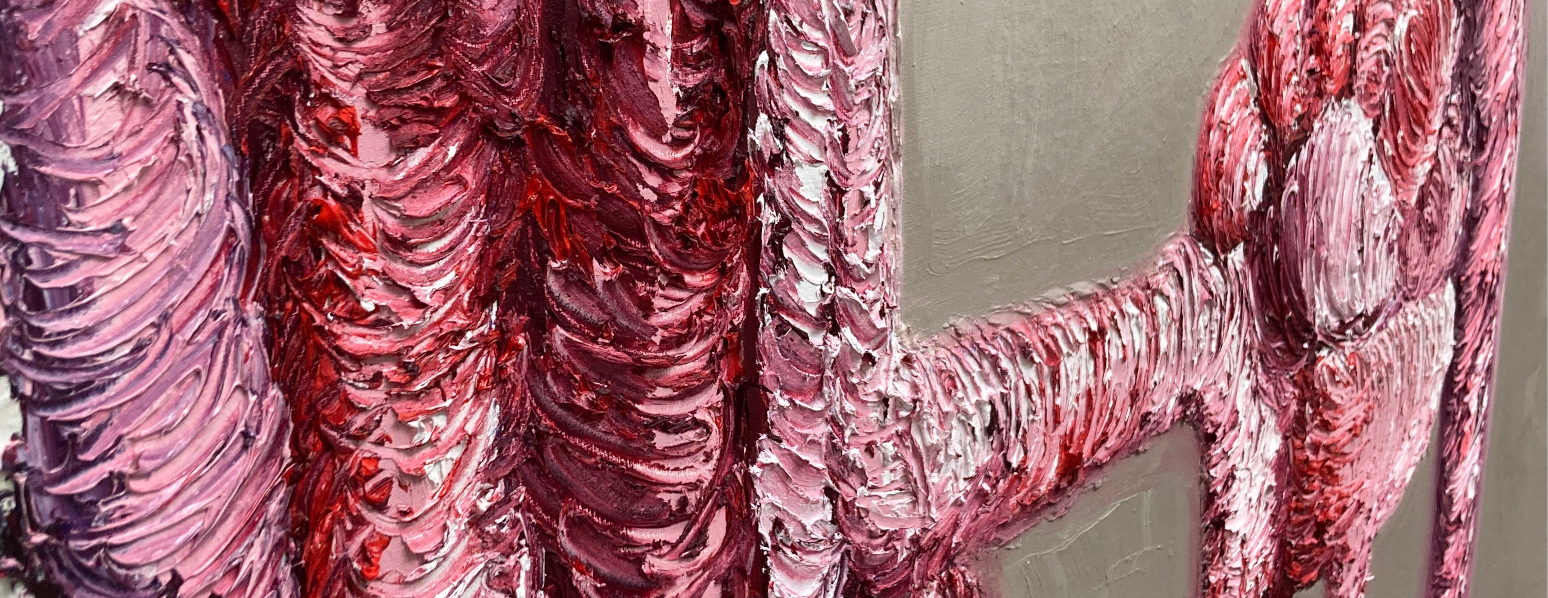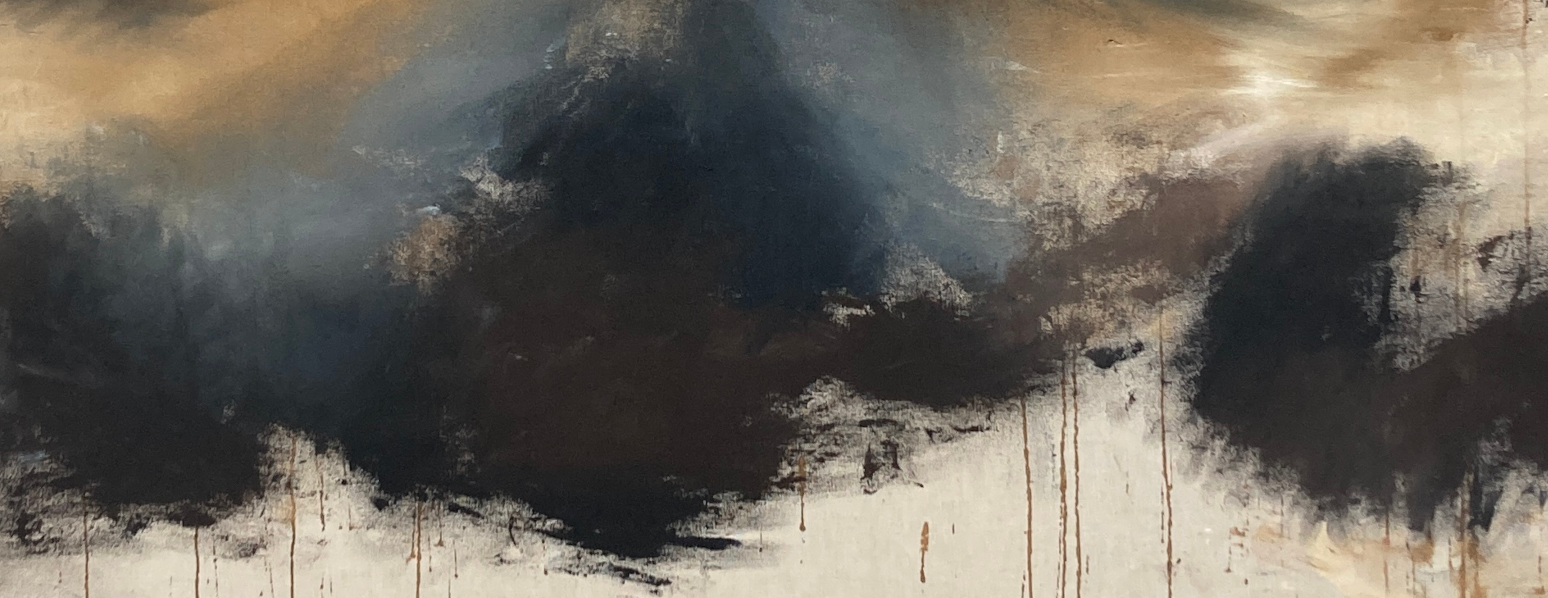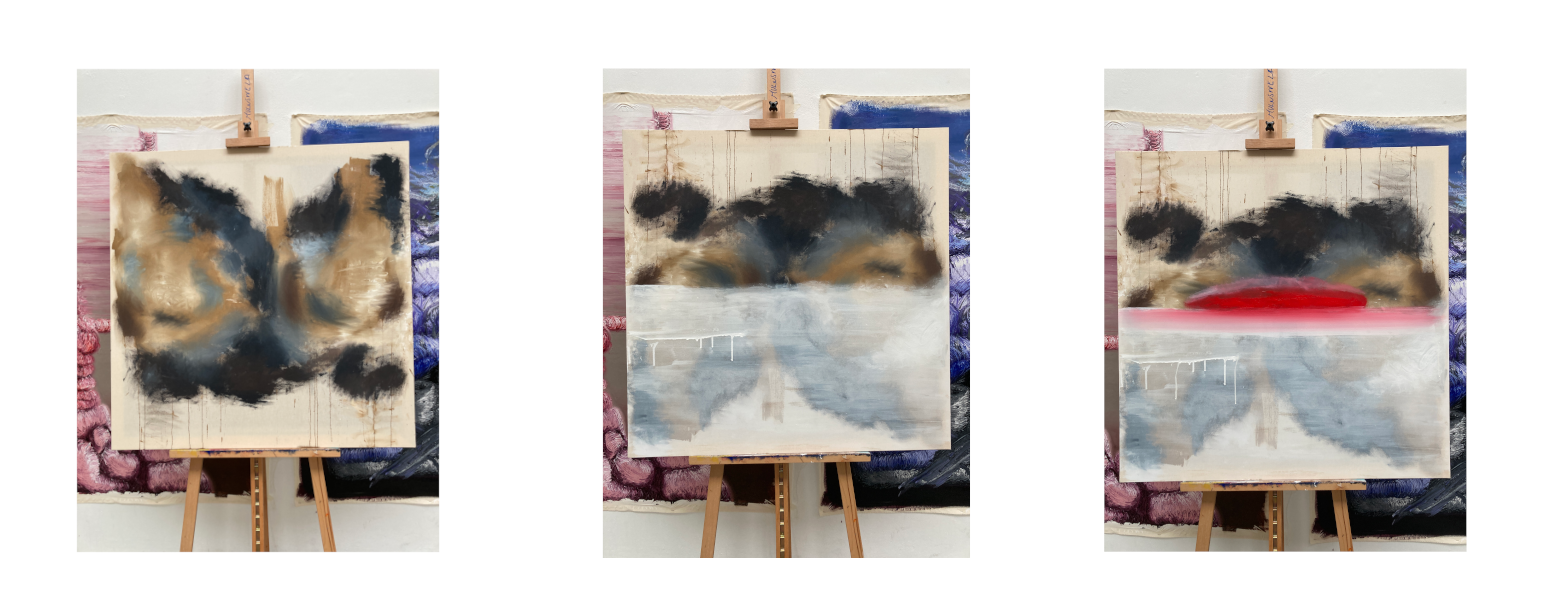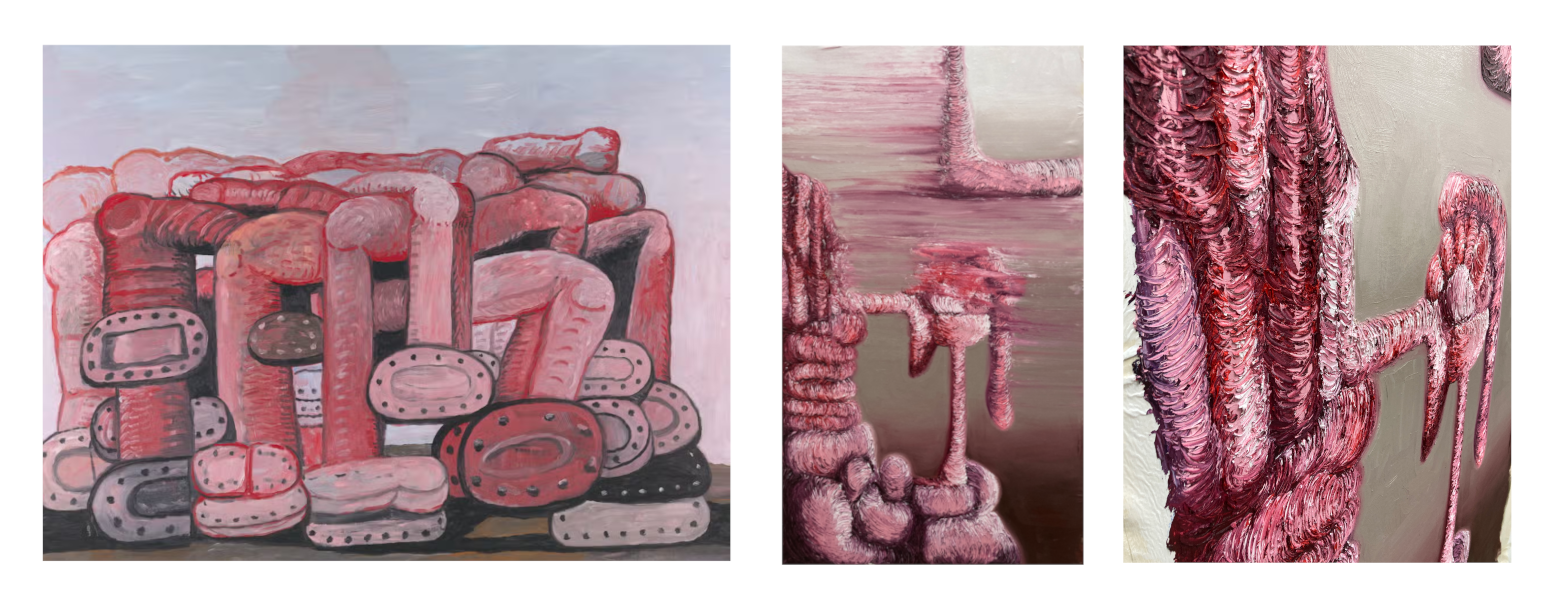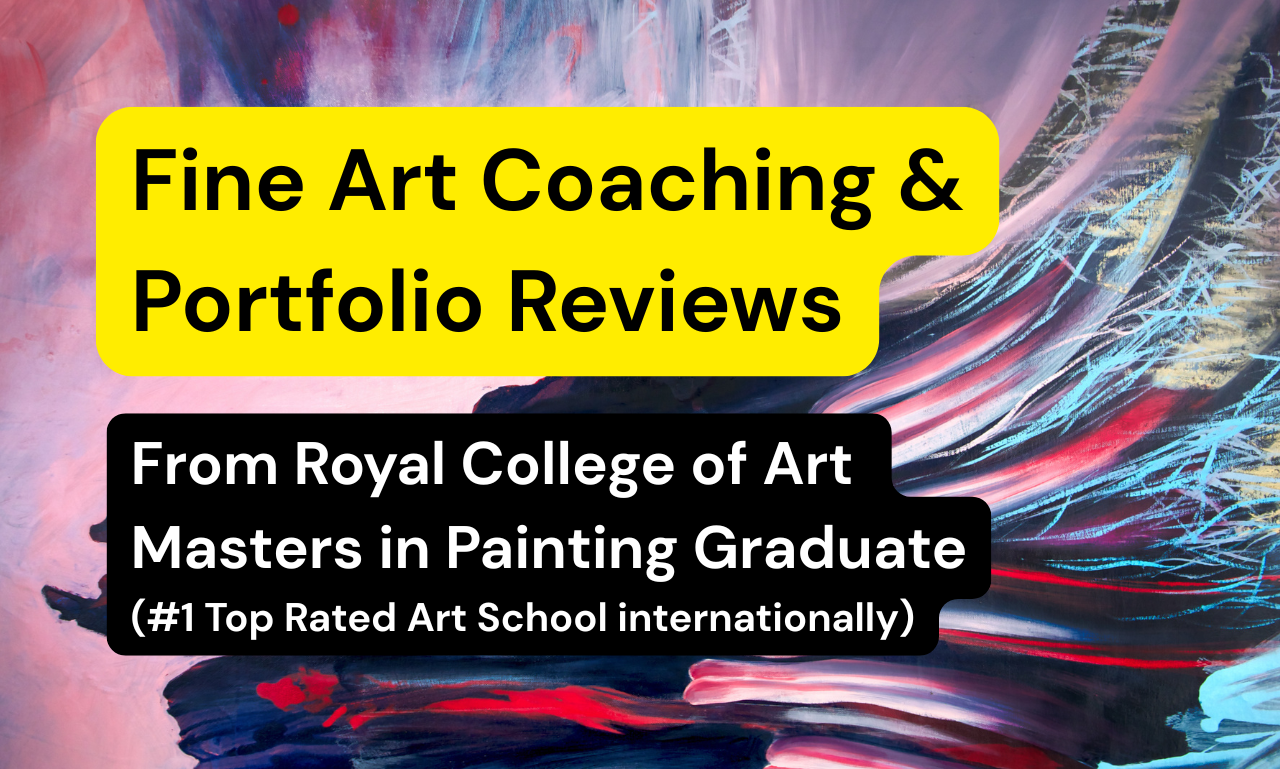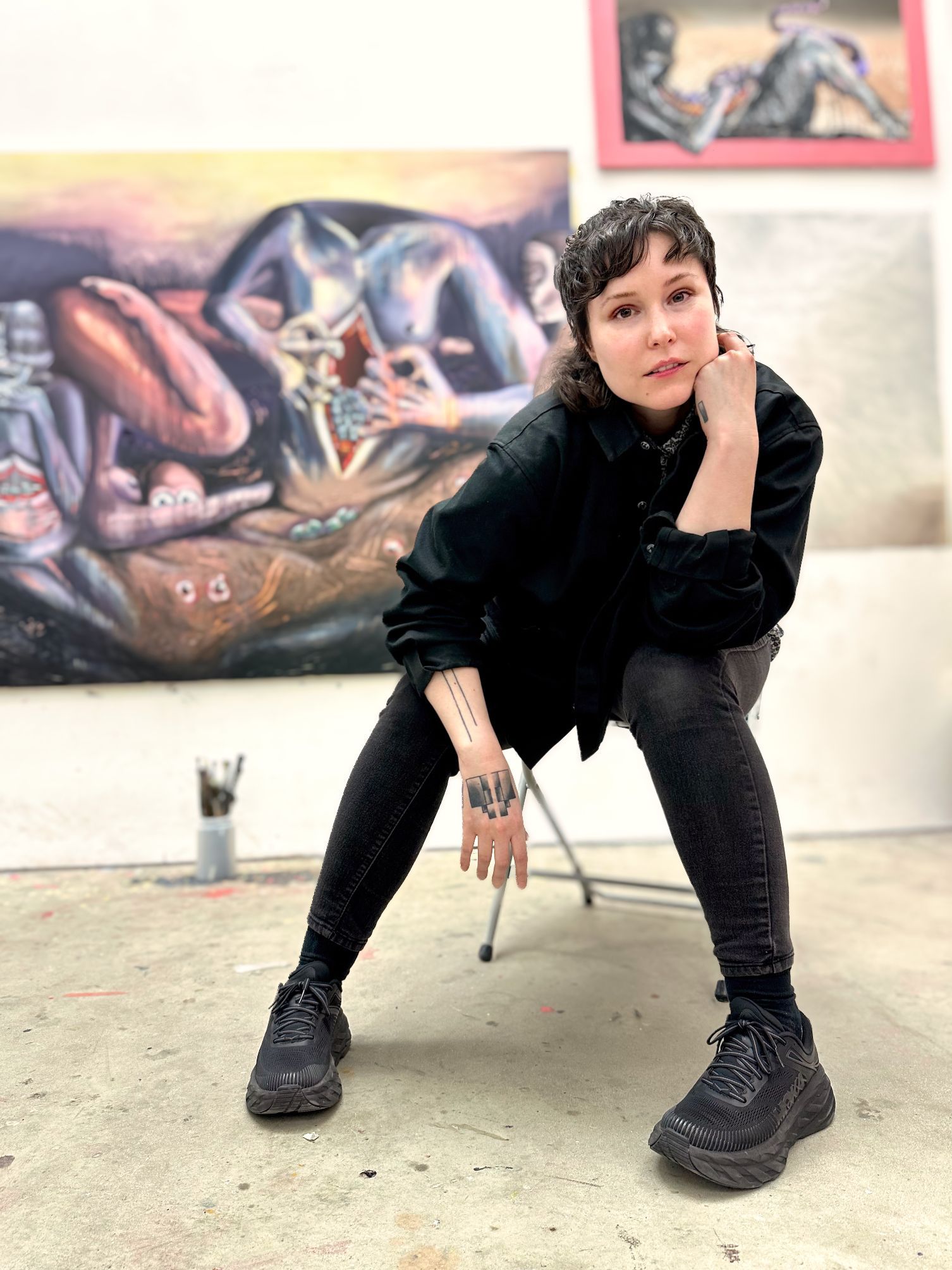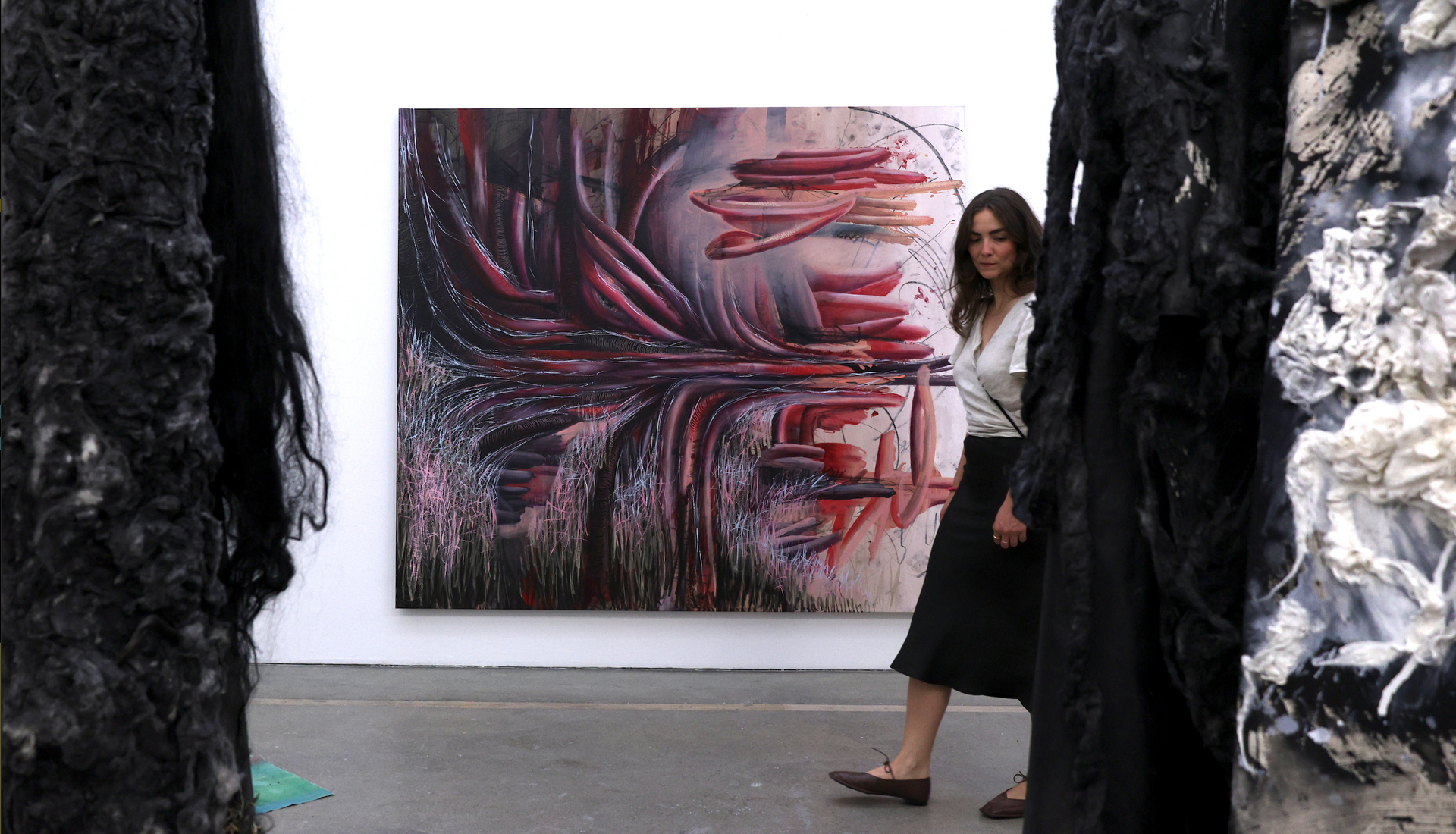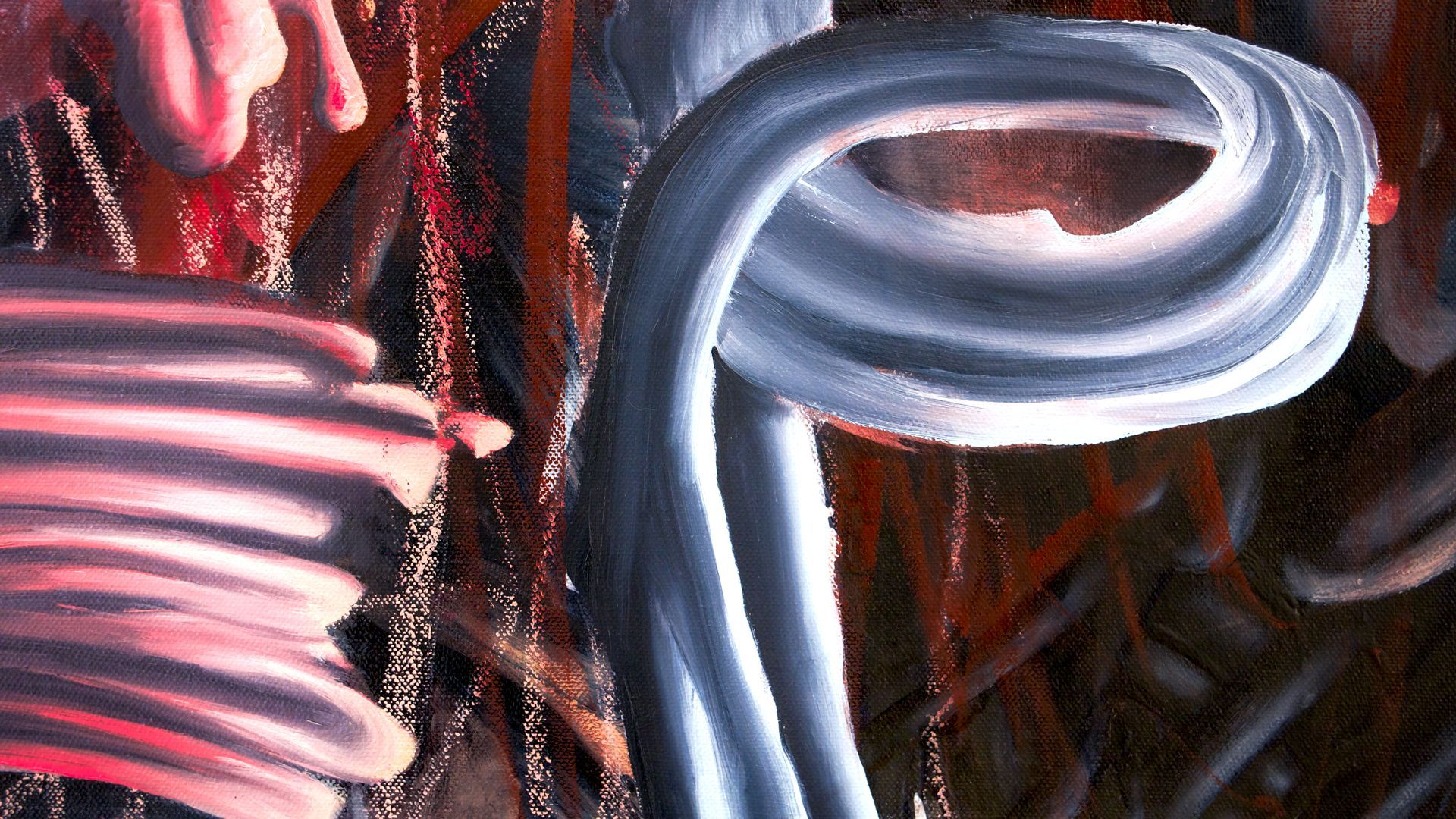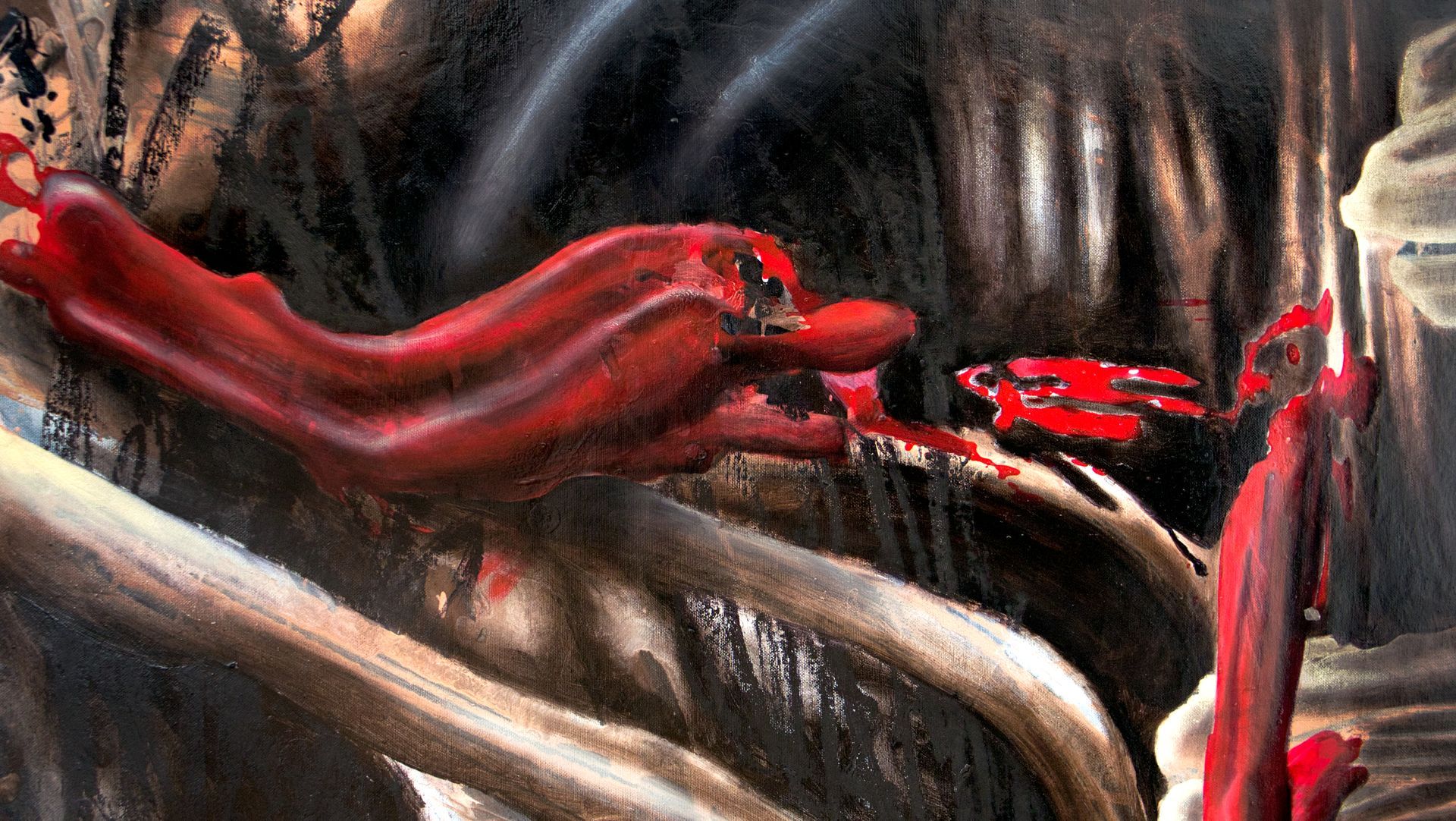Letting Go of Aesthetics to Explore the Power of Texture, and Sensorial Experience in Artmaking
Embracing Sensation Over Aesthetics in My Time at Royal College of Art
There’s something about the experience of painting with my eyes closed that captivates me—it’s as if I’m going beyond visual interpretation and diving deeper into the realm of pure sensation. This is why I’ve recently found myself drawn to using thicker and thicker paint. I want to place the paint down, feel it, and move it around with my hands—not in a controlled, design-oriented way, but in a more visceral, instinctive manner. My goal isn’t to create an image or something traditionally "aesthetic," but rather to feel what feels good and explore those sensations throughout the process. This exploration is just the beginning; I see it as a launching point toward something even more profound.
These ideas were solidified by my experience of closing my eyes and running my hands through the paint seen in this video
here.
Learning Through Process: "Taking Care" and "Destroying"
After a tutorial with my personal tutor, she recommended a fascinating approach: to both "take care" of and "destroy" in my painting process. I followed her advice, really trying to "take care" of the canvas, which for me meant massaging the paint onto the surface. It reminded me of how I’ve handled my own scars in the past, working gently yet with purpose. But the process was physically demanding—my hands were sore for days afterward! While it’s not a sustainable method for me, I discovered something valuable: this technique created a beautifully blurred effect with acrylic paint (image below), one that I’ll likely incorporate into future works in selective areas.
This exercise also led me to a deeper realization about the relationship between "taking care" and "destroying." Rather than existing as opposing forces, I see now that destruction is sometimes necessary for true care to emerge—like in reconstructive surgery, where something must be broken down to rebuild better. This discovery feels incredibly important for my work moving forward. (Below, images of the process of painting, when I intentionally "take care" of the canvas.)
Breaking Free From References and Finding My Voice
Alana also emphasized the need for me to develop my own artistic language—not one that mimics Philip Guston (below left image) or any other influences. However, I can’t deny that there’s something intriguing about the "Guston-like" style I’ve been developing, even before I fully recognized his influence. The organic figures I’ve been creating, combined with a similar pink color palette (my work below, center and right images), might draw comparisons to his work, but I’m confident that as I continue down this path, I’ll uncover something distinctly my own. I believe that this journey is being guided by something deep within me. At first, it may remind others of familiar artists, but with time, it will evolve into something unique and personal.
Moving Beyond Representation: Texture, Feeling, and Vulnerability
This moment in my artistic practice feels completely new. Instead of focusing solely on representation or conveying a specific message through my painting, I’m beginning to pay more attention to texture, feeling, and sensation—the visceral aspects of creating art. It’s a vulnerable place to be because, truthfully, I don’t always like the work I’m producing right now. But I also know that these experiments are essential. They’re feeding back into my practice, allowing me to expand my range of techniques and tools that will sustain my work in the long term.
This experience is about pushing boundaries and trusting that by embracing the tactile, messy, and uncertain elements of the process, I’ll ultimately find my voice. I believe that’s where the magic happens—when we let go of the need for perfection, and external validation, and allow ourselves to truly feel.

